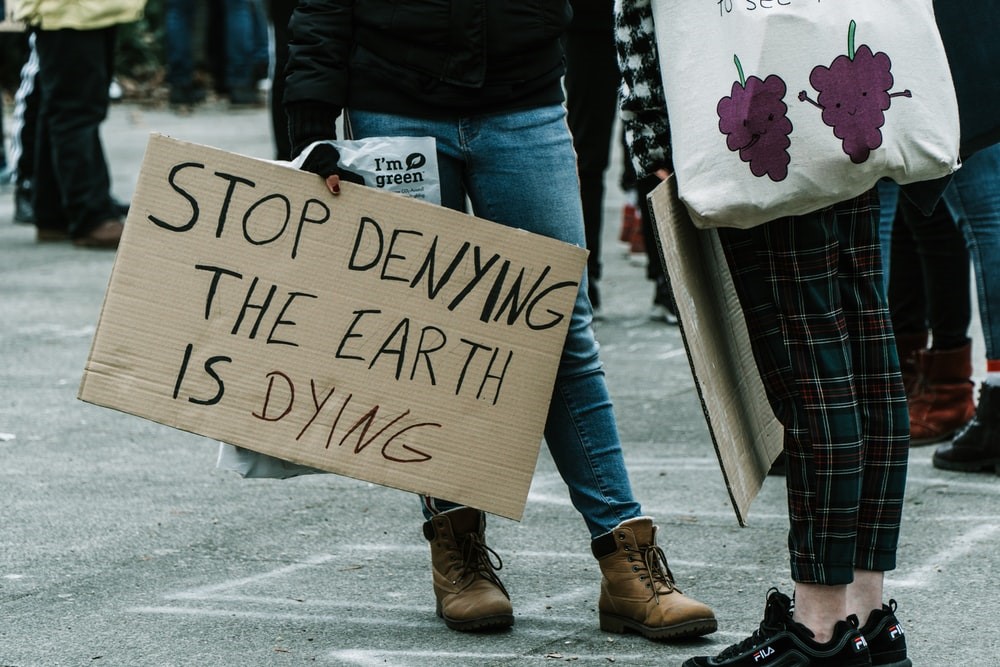As climate change is on the corporate, political and social agenda more than ever before, climate change denialism is also rising. Ivan Cheung, digital marketing consultant, urges brands to demand more from the platforms where disinformation is rife.
Conscious media investment
This article is part of a series of articles from the WARC Guide to conscious media investment.
It’s a dangerous time to be a digital marketer. Disinformation is sneakier than ever – and more professionals every day are shocked to find their brands’ reputations aligned with the fringe extremists propagating climate denial and disinformation.
Creating fake content and spreading it is nothing new, of course, but the narratives that are emerging are harder to identify (and harder to prevent your ad dollars from sponsoring) than ever before. What was once outright climate denial is now often specific and insidious attacks on people, events, and issues – imagine finding your brand’s advertisement spotlighted in a video that goes on a tirade about how young students are fascists because of their concerns about the climate?
For good brands who work hard to put themselves in a position of corporate responsibility, the threat is more hideous, and arguably more destructive, than it’s ever been. Study after study shows that a majority of consumers (69% in one poll) are changing their behaviour because they’re concerned about the climate. More and more, corporate reputations are being tied to climate activism.

This is all inherently connected to digital marketing: Creating such narratives is a profit-making activity in the age of engagement and ads-driven algorithms. The proliferation of climate denialism, discourses of climate delay, greenwashing and all the other false climate content is a business model that generates revenues for its creators. It’s a marketing technique – a socially destructive one. Many climate disinformation pages are monetizing their content, and Big Tech’s prevention mechanisms fail to notice those pages. The owners of those pages identify and target echo chambers and flood those chambers with disinformation to boost engagement and increase their profits.
There is not a lot of wiggle room to get this wrong. Climate disinformation can – and absolutely will – undermine a good brand’s values, good intentions, and public reputation. It’s time to demand solutions from the platforms that are selling the advertising.
Read more articles from the WARC Guide to conscious media investment.
Advertising, but at what cost?
Danny Stone
Hate speech online has real-world consequences
Hilary Watson
How conscious advertisers can help make hate unprofitable – and protect high quality journalism
Richard Wilson
Planning for inclusion: A media case for conscious advertising
Christopher Kenna, Chris Ladd, Francesca Leronni, Martin Radford
Telling stories about advertising and human rights
Dr Pia Oberoi
How big tech, advertisers and regulators must work together to combat climate change denial
David Puttnam
Unpacking the tensions in media: Ensuring advertising supports inclusion
Isabel Massey and Jerry Daykin
Can responsible media investing be operationalized?
Krystal Olivieri and Belinda J. Smith
How becoming more diverse, inclusive and responsible is helping The Sun remain relevant
Dominic Carter and Shelley Bishton
Read more articles from the WARC Guide to conscious media investment.
Advertising, but at what cost?
Danny Stone
Hate speech online has real-world consequences
Hilary Watson
How conscious advertisers can help make hate unprofitable – and protect high quality journalism
Richard Wilson
Planning for inclusion: A media case for conscious advertising
Christopher Kenna, Chris Ladd, Francesca Leronni, Martin Radford
Telling stories about advertising and human rights
Dr Pia Oberoi
How big tech, advertisers and regulators must work together to combat climate change denial
David Puttnam
Unpacking the tensions in media: Ensuring advertising supports inclusion
Isabel Massey and Jerry Daykin
Can responsible media investing be operationalized?
Krystal Olivieri and Belinda J. Smith
How becoming more diverse, inclusive and responsible is helping The Sun remain relevant
Dominic Carter and Shelley Bishton

